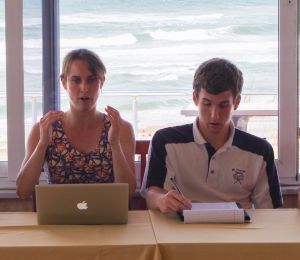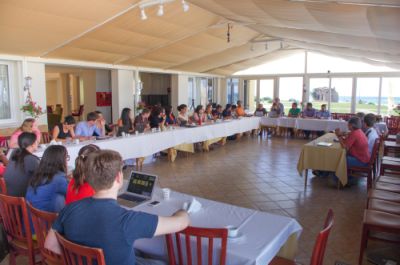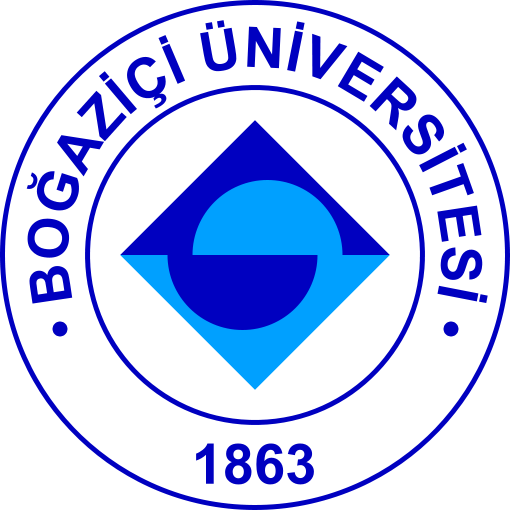Menu
Travel Info:
Panel
 Hannah Watkins and Will Mattern Hannah Watkins and Will MatternPanel Co-chairs |
The panel for the 13th International Summer School on Biocomplexity and Biodesign: Gene to System was held on June 20th. Summer school students and faculty discussed a variety of topics that ranged from the impact of the summer school itself to different career options and the process of securing a tenured job in academia. |
Following discussion of the program itself, the conversation turned to future career goals of the participants. When surveyed, academic research was the most popular career interest among the students. Other interests were consulting in industry and teaching in a non-research position. One recurring piece of advice in how to be successful in academia was to build a strong network using available resources. The workshop faculty recommended that students be proactive about their careers, especially by fostering a strong relationship with their advisor. Professors then shared their career trajectories with the students. Professor Hess's opinion was that there were many paths into academia. While some people are able to continue their research from graduate school into an academic position, most are required to change focus numerous times. Professor Guzman mentioned that while searching for new faculty, he looked for research approaches distinct from current members of the department. It was agreed that a willingness to embrace new topics and the cultivation of a widely applicable skill set would be beneficial for students as they develop their careers. The professors also noted that having high impact publications and funding would help secure a faculty position. During interviews for a faculty position, a clear presentation style, a willingness to interact, and a strong dedication to pursuing an academic career were also critical. The panel mentioned that a post-doctoral research position was most often required before transition into a faculty position and that it could help generate a strong publication record. Faculty also mentioned that attaining an intermediate position between post-doc and assistant professor, such as research associate, could be helpful in making one’s application stand out when applying to faculty jobs. While the path to academia can be long, all faculty expressed a strong appreciation in their jobs and in their freedom to choose research topics. |
|
 |
|

